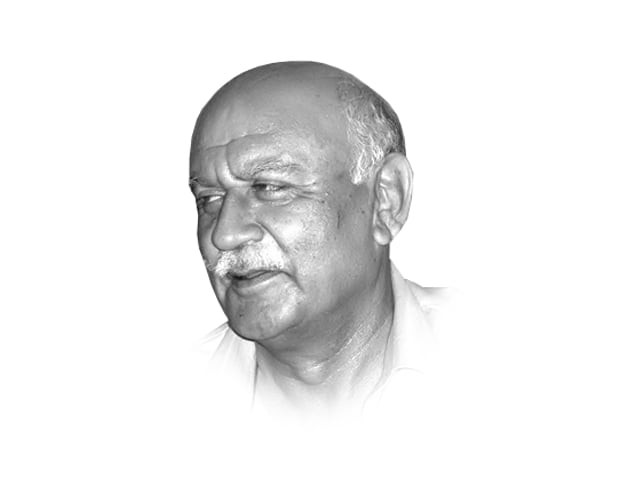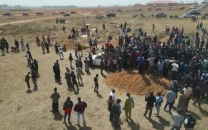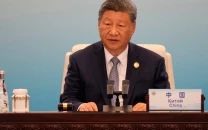Our strategic commercial corridor(s)
Pakistan’s ‘strategic location’ is strategic only if it returns to being the centre of commercial activity.

Let us, however, start with China. About a decade ago, China completed an oil pipeline from Kazakhstan to Urumqi, where it constructed an oil refinery. Suddenly, industry sprouted around Urumqi and the entire province has become rich. Goods produced around Urumqi are transported by rail and road to Chinese eastern ports, a distance of about 2,500 miles. From there, transportation by sea to the Far East and the Americas is easy, but to access the rest of the world Chinese ships goes through the Straits of Malacca, travel almost 5,000 miles to reach the Gulf of Aden and another 5,800 miles to reach the Arabian Gulf. Most of this route has operational US military bases on it.
On the other hand, a rail link from Urumqi to Havelian in Pakistan, parallel to the Karakoram Highway, is already in the pipeline, despite some technical difficulties. From Havelian, a direct rail link will connect to Gwadar. An extension of the Kazakhstan oil pipeline from Urumqi to Havelian is also in the offing.
Once the rail-link is established, goods from Urumqi can be transported to Gwadar, a distance of less than 2,000 miles and, once they reach there, they will be at the mouth of the Arabian Gulf and a mere 1,000 miles from the Gulf of Aden!
We know that Afghanistan is rich in mineral resources. The most logical and shortest route for them to reach the seas is via Gwadar; as it is for the CARs. However, if Afghanistan is denied to the CARs, due to insecurity which is likely to prevail for the foreseeable future, the next most logical route is via Iran. This route is unacceptable to the US and the US is in a position to have its way in this matter.
The next route out for the CARs to reach the seas is through China, sharing the rail/road link to Gwadar. A rail link from Almaty (Kazakhstan) to Urumqi already exists. It would take little effort for other CARs to route themselves via Almaty. The US does not favour this route either, but it is not in a position to deny China to the CARs.
This is our strategic commercial corridor (henceforth SCC). Not only will it solve our energy crisis, the revenue generated through commerce can make us a modern day Singapore. The only hindrance is the unrest in Balochistan. That is why our unfriendly neighbour(s) are interested in stoking the unrest there.
Our political leaders cannot see the significance of this or are incapable of doing anything about it since our economic future is inextricably linked to the SCC and, therefore, to peace in Balochistan.
India is also energy starved. It tried to get oil from Myanmar but its plans were foiled by China. Without cheap energy resources, India will fail to achieve its ambitions. The cheapest method of transporting energy is through overland pipelines. For cheap energy to reach India overland, whether from the Middle East, Iran or the CARs, is through Pakistan; that is a geographic reality.
One day, India will acknowledge this truth and realise not only that a peaceful Balochistan is in our common interest but that our economic future is still tied to each other by an umbilical cord.
If we look at the energy and mineral rich CARs, the most logical route out for them is through Afghanistan on to Gwadar.
Published in The Express Tribune, November 29th, 2010.



















COMMENTS
Comments are moderated and generally will be posted if they are on-topic and not abusive.
For more information, please see our Comments FAQ